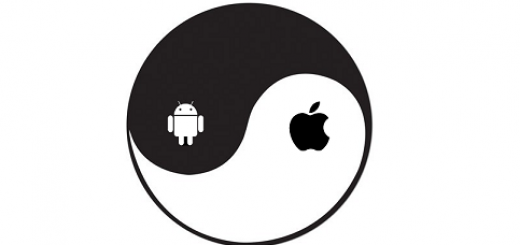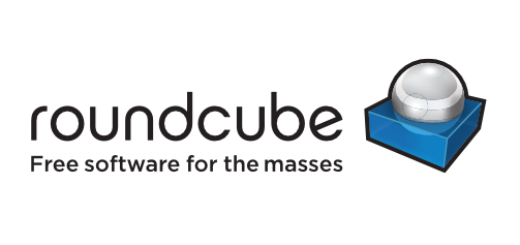Block chain is nice, but not going to “completely change the internet”
We are hearing a lot of noise recently around blockchain, the technology that Bitcoin is based on, and how it is going to completely change the face of today’s internet to “something completely new, totally different, a revolution.” Well, this is wrong. Yes, blockchain is a bright revolutionary idea, but in this article, I will argue why I think that it is not going to turn the internet upside down, and what the really good things that blockchains could do for us are.
What is Blockchain?
Blockchain is basically a type of decentralized database. Instead of the data being owned by one entity which distributes its data to users, with a blockchain, the data is distributed between the users, while they exchange/replicate the information about data updates on some frequent basis. Blockchains have some unique design which, on one hand, lets the data be distributed between all users, but on the other hand is secured from any malicious data corruptions. The way it is done could be simplified to a primary school explanation: imagine that both you (node A) and I (node B) want to exchange information with Clara (node C) without anyone else (node D) disrupting the authenticity of the data, even if we pass it by node D before node C receives it. So both node A and node B would send the data to node C via other nodes, but in such a way (and this is a core blockchain design), that decrypting the data would take lots of time, so much time that it will be longer than the time required for the data to be exchanged and compared. Node D would compare the data given by node A and node B, and if they are different, it would know that it was breached by one of the previous nodes. Recall that decrypting the data and encrypting it again (the operation required by malicious act that would like to pretend that it is kosher) would take much more time than just to “compare” it; therefore, the scammer would be caught if anything malicious was done. It also explains why blockchain is called a “crypto database” and why Bitcoin is called a “crypto currency”: this is because the process is based on those encryption and decryption calculations.
Why Blockchain is NOT Going to Turn the Internet Upside Down?
Blockchain is not going to “change” the internet upside down because it is merely a decentralized database, and databases are not the only things that exist on the internet. Besides that, there are other types of databases which are decentralized, and actually, you could find lots of complete systems – like P2P (Peer-To-Peer) systems, which are 100% decentralized by design (i.e., not just decentralized databases but the system as a whole is decentralized). Besides that, many internet systems are required by design to be centralized (for example, this blog database). Let me explain those three points in detail:
- The internet is not just about databases: the internet is built on many layers, from the user interface (which is the graphic design), to the browsers (which are running HTML and Javascript) to the backend/server application software (which is usually based on a programming language + a database) and then the hardware (the CPU, hard disks, network cards, etc.), the communication protocols, and other layers (total of 7 layers). As you can see, blockchain is touching only a small part of one layer of the internet – the database which is part of the application layer. So even if blockchain is a revolutionary idea, nothing dramatic is going to happen by it to the other layers of the internet.
- Some applications must be centralized: distribution of data is a matter of requirements and design. Some web applications (actually, most web applications) require the data to be centralized; this is the case, for example, with this blog and its database – users are required to connect to a database which is run and maintained by one and only one user (me) who is the source of information. Decentralization, on the other hand, is important for very specific requirements, especially when data from one user is relying on data/information or actions by other users. A good example would be transaction systems or contracting systems.
- Some decentralized applications need more than just a decentralized database: What I mean is that the blockchain design is relying on locally installed software (e.g., a browser or another software that a user is running) that connects to the distributed database. However, not all internet applications are running on a browser, and not all of them are running on the local machine but sometimes on a server or some other setups (e.g., geospatial servers/mapping services/weather API services, etc.).

Security: Is Blockchain Providing Full Anonymity?
No. Plain and simple – No, blockchain is not a vault that hermetically secures us from hackers, fraudsters, copyright breaches, and viciously spying governments; it is actually open to security breaches, at least like, if not more than, any other system over the internet. The security fuss around it is just another misunderstanding of how the internet is built. Even if blockchain nicely secures the way data is stored and distributed, this is only one aspect of internet security out of many others. People who claim that blockchain is giving full anonymity to users are wrong and misleading others: yes, indeed, the application itself is providing anonymity, however, by all means of the other layers of the internet – the ISP (Internet Service Provider) layer, the Mobile Network Internet Provider, the network layer, the hardware layers – in all those layers, any type of data that you send to the network and all actions that you perform are fully exposing you. Blockchains won’t help people hide!
Another aspect of blockchain security exposes every blockchain network to security risks that do not exist with centralized databases: if a critical amount of users (or of CPU, i.e., computer power) decide to manipulate the blockchain data, they could easily do that. For example, if a big Hollywood firm or a powerful government organization like the NSA (both are entities that have a lot of CPU power) decided that they want to manipulate the Bitcoin exchange currency, they would be able to do that. Most likely, such an action is illegal, but still – if they wanted, they would be able to do it. And I’m not sure if it is so easy to track down such a blockchain security breach as it is easy to track it when someone is breaking into a centralized database since when a blockchain database integrity is breached, the manipulated action would become the “source of truth” for all other blockchain users.
So What Is It Good For?
I’m not trying just to bash blockchain here, but to give the right perspective about the new trend to worship blockchain like “the biggest thing the internet ever saw.” We had such IT worshiping rituals with the “bug 2000” buzz, with the “web 2.0” buzz, with the “cloud services” buzz, and now with blockchain’s buzz. Still – bug 2000 was a risk (just not so big to the magnitude that it was described by “experts”), “web 2.0” offered a new way to look at things (just not as revolutionary as “famous” people claimed), and “cloud services” are a really useful service, only that they existed before Amazon and before it was even named “a cloud” (the name was “scaled services,” etc.). The same applies to blockchains – the blockchain concept is great and is very useful for certain distributed databases, like for contracting systems, banking systems, social network systems, and other applications. However, blockchains are not a supernova that would wipe the whole IT galaxy without any surviving bits. So yes, we will see a lot of blockchain databases and applications coming into the market, but no, it is not the thing that would turn the internet upside down. I would say that the blockchain invention is as important as the invention and introduction of the SQL databases (MySQL, MsSQL, and other SQL standard databases), but not a lot more than that.
In one of my next blog items, I plan to look at the Bitcoin currency and to discuss – is it a fraud, or a legit currency? Would you want to invest in it?




